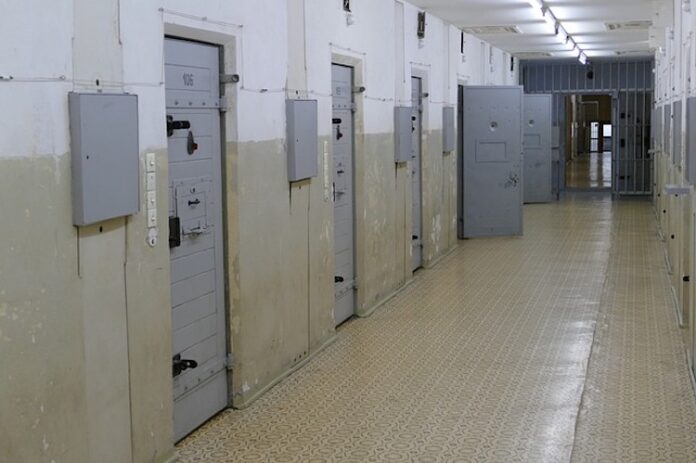The images of the violence in the Santa Maria Capua Vetere prison in the province of Caserta exploded in the consciousness of an entire nation. Such terrible images still remain in the national media as a warning because watching unarmed prisoners exposed to gratuitous violence by a handful of prison officers raises many serious questions. Yet, the world of prisons is a world far from public debate. It is a territory we want to be far away from and isolated from our consciences. It is not our problem, yet when it explodes, it involves everyone. We face this world, unknown to most, talking with the magistrate Sebastiano Ardita, currently advisor at the Superior Council of the Magistracy (CSM). Ardita has worked in the Anti-Mafia District Direction of Catania, where he has dealt with investigations for crimes against the public administration and Mafia infiltration in public procurement and supplies. In 2002 he was Director of the Prisoners Office at the Department of Penitentiary Administration (DAP) and responsible for implementing the 41bis regime. He is the author of various texts, including Cosa Nostra SpA, in which he analyses the economic pact between white-collar workers and organised crime.
When the lockdown was declared in March 2020, the prison revolt erupts. A year and a half later, we see the images of the April 2020 slaughter in the Santa Maria Capua Vetere prison. It seems evident that the world of prisons becomes news, only to be forgotten immediately afterwards. Why is there this attitude?
Because it is a sector for which a sort of removal operates on the part of citizens. Many consider it a place destined to accommodate people to be kept away from society, which determines a lack of interest in its real conditions. It is considered almost useless by some to spend resources and worry about it since they do not see what the benefit is for the community. Instead, it is exactly the opposite. A prison is a place of transit – often brief – for many people, and the failure of that experience often results in criminal recidivism. Therefore, society pays a very high price for its bad functioning. Only serious events such as riots and beatings rekindle interest, but within a framework of superficial and often disarming attitudes.
From your point of view, why is the management of approximately 54,000 inmates in a nation of 65 million inhabitants so problematic? The number is undoubtedly challenging compared to the population. However, it does not seem to be impossible to manage.
The number of detainees present are low both in relation to the extent of criminal phenomena present on the territory and if compared with the reality of other European nations. The question concerns the resources employed – there is a lack of educators and directors, hence those who have to build the paths of reintegration – and also the spaces, which are absolutely inadequate and designed for a maximum-security prison, completely closed to any innovation.
There has been a long and articulate discussion on 41bis recently, even with the intervention of the Constitutional Court. Why are just over a thousand 41bis prisoners, the most dangerous criminals for the democratic State, so central to the public debate, as if the State were subjecting them to inhuman treatment? How misleading is this perspective, and whom does it benefit?
The prison is a set of communicating vessels. If pressure is exerted somewhere, it is transmitted to the rest of the containers. Having said that, it is evident and normal that maximum-security regimes are under the lens of justice bodies and human rights organisations. In Italy, the instruments of prevention have been founded on a fair balance with respect to the serious dangers associated with the action of mafia associations. Moreover, often the criticism of prison is gratuitously extended to situations in respect of which the measures serve to save the lives of innocent people. But it is evident that also the mafia organisations, for completely different purposes than the humanitarian ones, aim at de-structuring the rules of the preventive prison, in order to allow their leaders to continue to direct criminal affairs from prison.
In Italy, it seems that almost no one wants to believe in re-education within penitentiary institutions. On the other hand, many supervisory magistrates have proven the possibility of paths that lead people to a second chance after paying their debt. Why is there this willingness to condemn without appeal in common feeling?
Because there is not enough appreciation of the fact that, after a re-educational path, normally the tendency to delinquency is also extinguished. In reality, what needs to be avoided is that imprisonment may make the offender less attractive or encourage him to continue his criminal activity. Also, because in our Country detention is a temporary condition.
You have often spoken about the complexity of the world of prisons, of the DAP (Department of Penitentiary Administration), of how to protect the work of agents and prisoners’ rights. What is needed in the immediate future so that “suspensions of Democracy and the Constitution” do not happen again?
There is a need for that rebalancing between security and freedom that characterises the entire penal experience and finds its most critical point in the prison. In the immediate term, prison’s workers must regain the trust of citizens and all institutions. That those who have made mistakes pay, but without questioning the authority and authoritativeness of the Institutions. Moreover, let it be clear to all that the return to security in the penitentiary institutions must pass through the respect of all the rules laid down in our Constitution. Nevertheless, nothing can be achieved if you do not know the prison and do not intervene on those rigidities or weaknesses that make it difficult to live and without improving the living conditions in prisons, because – as has been well said – the dignity of those who work there is connected to that of those who are detained there.
Leggi anche





















